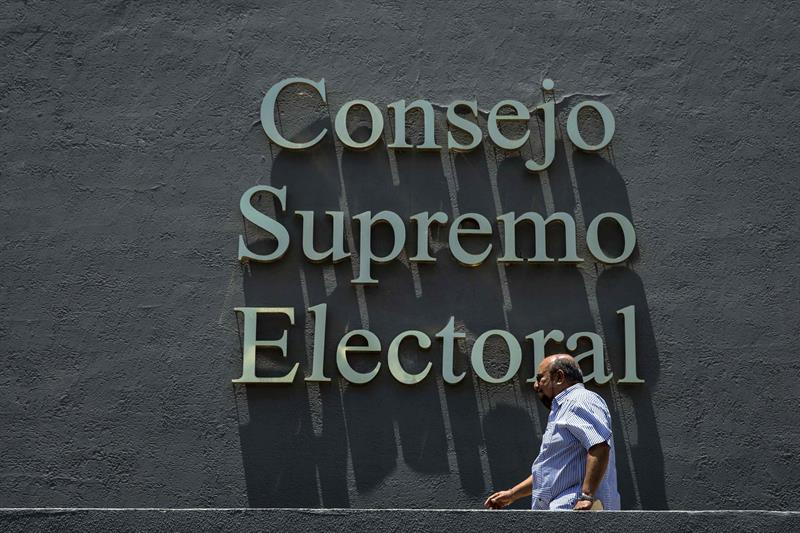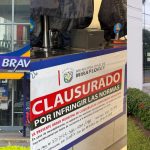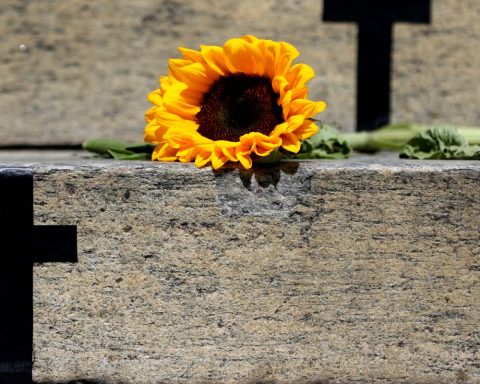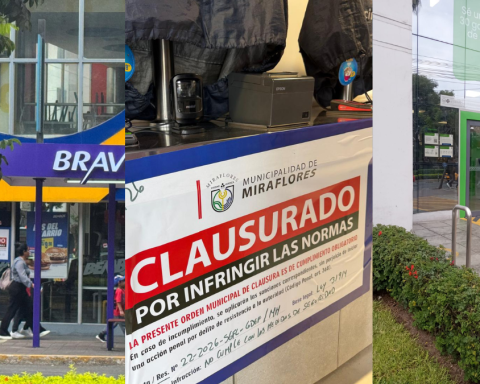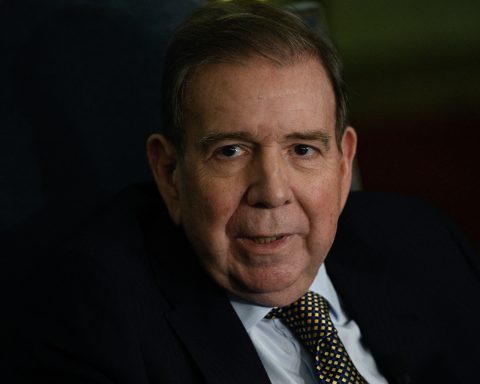This Thursday, September 22, the list of candidates for mayors, deputy mayors, and councilors for the 2022 municipal elections, which are controlled by the Sandinista Front and its collaborationist political parties, will be made official.
This scenario points to a reissue of the electoral farce of 2021, with the Ortega regime assigning itself the largest possible number of mayorships, leaving as a question how many will be handed over to the collaborationist parties or if control of all Nicaraguan municipalities will be obtained.
An analysis published by CONFIDENCIAL He explained that the Sandinista Front will “recycle” 118 of its mayors as candidates to continue governing in their communes, which, in the opinion of municipalist expert Silvio Prado, exposes “the poverty in the quarry of Sandinista cadres” and how the Ortega works in favor of rewarding loyalty, more than a good performance as a municipal official.
Political analyst Eliseo Núñez Morales, for his part, insisted that the 2022 municipal elections seek to strengthen the model of a single political party to which the Sandinista Front is betting, one more step towards the authoritarian system imposed in Nicaragua.
Both specialists were interviewed on the program Tonight-broadcast on YouTube and Facebook due to the dictatorship’s censorship- as part of a panel in which they addressed the gloomy panorama of Nicaragua in the face of this new voting process, without transparency and political competition.
The Sandinista Front will recycle 118 mayoral candidates, out of the 141 mayoralties it currently controls in the country, according to an analysis by CONFIDENCIAL. What is the government party looking for by keeping the same political operators in these positions?
Silvio Prado: It is a system of rewards and punishment. The one who has yielded the most to the regime is rewarded, the one who has acted more as a paramilitary leader, the one who has followed the party lines and those who have not done so are punished. A performance evaluation is not being contemplated. Fidelity or loyalty is simply rewarded.
Second, it is shown that the Sandinista Front does not have a policy of promoting cadres, which at the local level has no replacement. You are going to tell me that out of 100,000 alleged members or militants of the Sandinista Front, there are only hundreds and odds who are capable of running a mayor’s office, and that is why they are going to repeat. So, what it shows you is a poverty in the quarry of cadres of the Sandinista Front at the local level.
Third, there is a stagnation of the Sandinista elites. There is no local leadership that is projected towards public office. That means that there is a blockage in the elites, which does not allow the new generations, the new activists, the new cadres to come up. That they repeat (as candidates) would not be a problem if there was a competitive electoral system in the country, because the population is the one that rewards or punishes those who have performed poorly, because let us remember that the mayor is the ruler closest to the population.
In the municipality of Jalapa there was a protest by Sandinista militants against this imposition of candidates. Some were punished with prison in El Chipote. Is there no longer the right to dissent in the ranks of the Sandinista Front?
Silvio Prado: It is that there has never been a right to dissent. What happens is that before they shot you, they executed you, like during the war against Somoza. I tell you that I come from within the Sandinista Front itself. Now, these protests are the same as those that took place many years ago when the Sandinista Front decided not to hold primaries and appoint by finger. This is a practice that is already known from the Sandinista Front. What is happening is that they are applying the same medicine to the members of the Sandinista Front that they apply to the rest of the population of Nicaragua, where there is no right to protest. These protesting militants are giving them a taste of their own medicine. There is. There it is shown that the dictatorial regime not only represses those who do not think like them, but also those who do not behave like automatons, like sheep.
In the Front’s list of candidates, there are at least two who were previously elected as municipal authorities in liberal polling places. Why does the Sandinista Front give candidacies to turncoat characters, but deny it to its own militants?
Elisha Nunez: That has a two-way logic. The first is that the Sandinista Front is moving towards a single party and the argument base of the single party is that the struggles for power take place within a single party and not outside it. If there are differences and there are struggles, they have to be within the party itself.
The second thing is that they are betting on a level of discrediting the political class that will take you to the point where no political alternative to the Sandinista Front is trustworthy. They have power because of their ability to exercise it through force and do not need any opposition group to gain prestige. In that sense, someone like Wilfredo Navarro serves them the same at the national level to discredit the political class, than at the local level any of these mayoral candidates they are putting forward.
What are the consequences of this imposition of candidates in the same ranks of the Sandinista Front?
Elisha Nunez: It’s that he who is in the Sandinista Front at this point, had to have already decided to be an automaton, he had already had to have decided not to have an opinion, not to have a thought. Basically, the effect is minimal, because the people who are in the Sandinista Front are for the salary they receive from the State or for the submission that it has decided to have. There is no one there who is for a decision to be free, to do things, or to improve the lives of the rest of Nicaraguans. All those who are in there are basically to maintain their salaries, their status or simply because they decided that it is easier to submit to the designs of Ortega and Murillo.
The dictatorship will seek to formalize control of the five mayoralties assaulted and dispossessed of the Cxl. What impact does the imposition of the dictatorship have on these mayoralties, which are traditionally opposition?
Silvio Prado: From the outset, it violates the popular will. I don’t know how many people are going to vote in those municipalities. I would say that if people are not allowed to vote for the candidates of their party that is not from the Front, people will abstain. I believe that there is going to be a high rate of abstention in these mayoralties. I think that is a distortion of the entry of the new authorities, because they do not have the legitimacy of origin, because they are not going to be elected by the vote of the population.
The other thing is that there was a deterioration of citizenship, of citizenship understood as the person with duties and with rights before the public authority, because you take away the right to choose and to be chosen. It is terrible that people are imposed as authority over a person who has not chosen.
What role will the collaborationist parties play? Do they aspire to a minimum appointment of mayors or is the Sandinista Front going to award all the municipalities in the country?
Elisha Nunez: I believe that Ortega is moving towards the model of a single party and what this would prove is that he takes over 100% of the mayors’ offices in Nicaragua and maintains some councils for the collaborationist parties for a while. The role they play is basically to be the companions of the burial of the multi-party system and the burial of the ability to exercise any democratic model within the country, and move on to an authoritarian model of a single and totalitarian party.
The collaborationist parties are going to accompany this with prebends. That is why they made the issue of electoral reimbursement. In addition, now the reimbursement is not against campaign expenses. Now the refund is direct. The votes you get are reimbursed and you do not have to submit invoices or support for any type of expense. It’s a prize you get for participating. Each vote has an amount in value and the vote assigned to you by the Supreme Electoral Council is paid to you with an amount of money. I think that is going to be around 350 to 400 million córdobas. You’re talking about 10 million dollars. I mean, for every one percent of votes you get, you’re going to have $100,000 in the bag.
In many cases of the recycled candidates, it is actually the political secretaries of the Sandinista Front who are in charge of pulling the strings of power in the municipalities. What relevance do mayors have today in the hierarchy of power of the Sandinista Front?
Silvio Prado: None, because the elected have not counted for a long time. They are elected by pure lie. I believe that now the weight of the political secretaries, as those who control power, will become more evident compared to the elected mayors in quotes, because they were not elected by popular vote, they were appointed. Unless the mayor coincides with the figure of political secretary and gives him a guarantee of control in some places.
In Managua, everyone knows that the mayor (Reyna Rueda) is a paper figure, that the boss is Fidel Moreno. So, that’s how it’s going to happen in other places, except places like Estelí, Matagalpa or Jinotega, where the mayor is a strong figure and concentrates political power, in addition to paramilitary power.
Now that the Sandinista Front gains absolute control of the territories, while the police state of siege remains in the country, what remains for the citizens, the opposition and the active forces in the country that resist the dictatorship?
Elisha Nunez: In this type of struggle that becomes you in the long term, it is to be ready to take advantage of any crack or possibility of generating changes. So you have to stay connected, structured, with minimal capabilities, but with capabilities. The worst thing that can happen to you is like in 2018, when there was an absolutely spontaneous explosion and there was no ability to lead that explosion, until it reached a point where a change would be generated. The change could not necessarily have meant Ortega’s departure. It could even have meant a change in the model, which would have made it possible to move forward with a political settlement, but not even that.
The absence of a leadership is what brought us to the point where Ortega waited for the people to get physically tired of the protests, to start his slaughter through the famous Operation Clean Up. So, the challenge is to maintain a minimum structure, maintain fluid communication and be able to identify emerging leaders and give them space, so that when there is an opportunity, they can lead it.
Silvio Prado: I doubt that the Front will take over all the mayor’s offices. He is not going to do it because he is not interested, it is not convenient for him. Just as it did not win all the seats in Parliament in the national elections. He is interested in continuing to maintain that appearance of electoral authoritarianism. I believe that he is going to leave some small town halls, that he is going to give them to the opposition. Nor is he interested in dismantling that collaborationist opposition he has. What remains, despite the fact that the Front takes over more mayoralties, is for the people to continue resisting as they are doing. Hope must be nurtured and hope is never abandoned. I believe that there are forms of protest every day in our country that feed that hope of resistance. If not, the Government would not be throwing people into prison every day.
